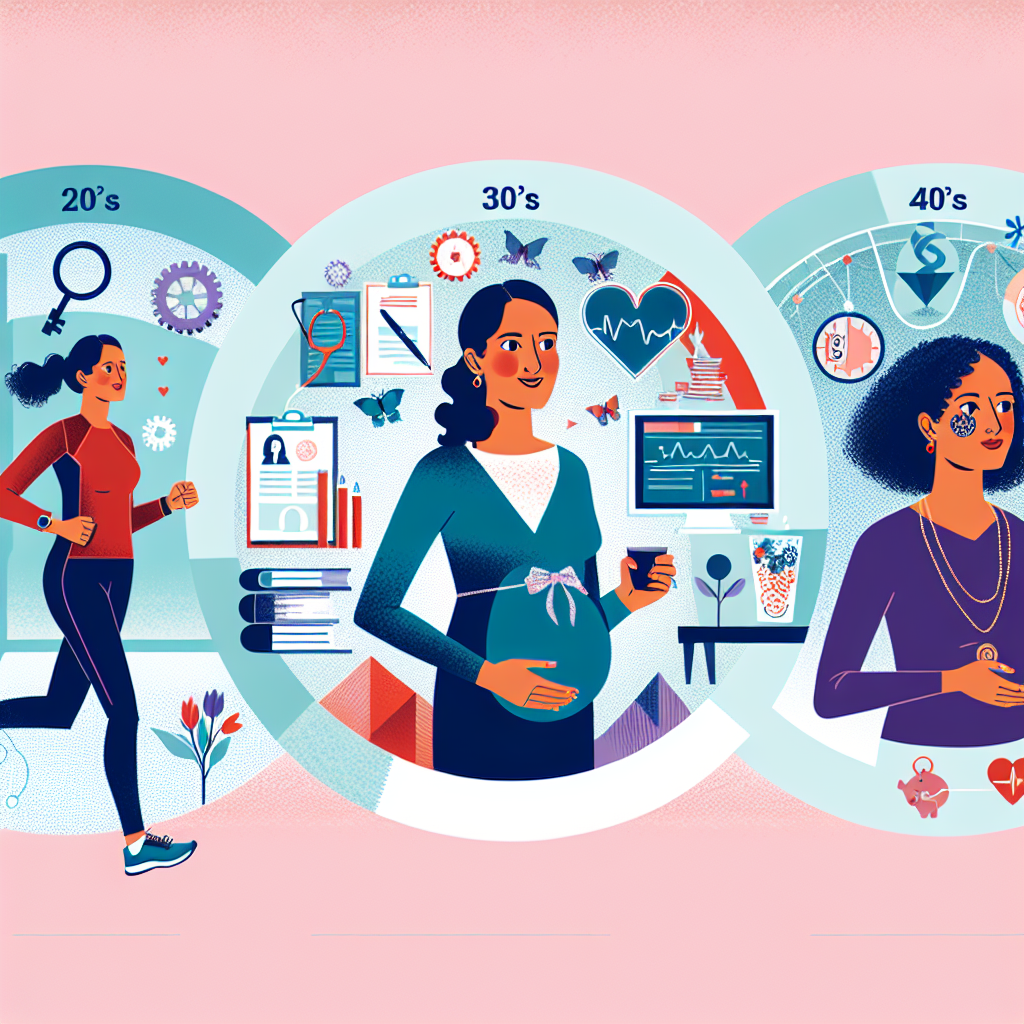Pregnancy at Different Ages: 20, 30 or 40 Years
A pregnancy can occur at any age, with each period having its own peculiarities and challenges. In this article, we will explore the distinctive aspects of pregnancy at different ages, adding valuable information to support you in this unique journey.
Pregnancy in Your 20s
Physical Advantages
Pregnancy in the 20s is often associated with remarkable physical advantages. Women are in a phase where fertility is at a high level and the risks of complications are low. The body is more resilient and recovers quickly after birth. Moreover, the risk of developing conditions such as hypertension or gestational diabetes is lower.
Social and Emotional Challenges
However, certain challenges also arise. In their 20s, many women are at the beginning of their careers or studies, and a pregnancy can seem overwhelming. Emotional aspects and social support play a vital role in managing this period.
Tips and Recommendations
It is important to seek a work-life balance and talk openly with your partner, family and employer about available options, as well as access support systems for young mothers.
Pregnancy around the age of 30
A Stage of Equilibrium
Pregnancy in your 30s seems to be surrounded by a balance. Many women feel they are both mentally and financially prepared to welcome a child. This age overflows with stability and preparation for parental responsibilities.
Health Considerations
The health outlook is generally still favorable, but fertility begins to decline slightly. Monitoring your health and nutrition is even more important now, along with regular check-ups with your doctor.
Tips for a Smooth Pregnancy
Prenatal education is key, along with maintaining a balanced exercise and rest routine. It is also the ideal time to build a support network with other mothers and engage in support groups.
Pregnancy around the age of 40
Challenges and Opportunities
Pregnancy after 40 means facing several medical challenges, including an increased risk of chromosomal abnormalities and complications. However, many women experience this stage with an emotional and financial maturity that supports them in managing their circumstances.
Fertility and Medicine
Fertility can be a major concern, but advances in reproductive medicine offer hope and possibilities. Close health monitoring and regular consultations with a doctor are essential.
Crucial Recommendations
Prenatal screening and genetic testing become more relevant at this age. Open communication with health professionals is necessary so that the most informed decisions possible are made. Also, maintaining physical activity and a balanced diet is extremely important during this period.
General Tips for a Healthy Pregnancy
Regardless of age, there are some universal tips that can facilitate a healthy pregnancy:
- Nutrition : Eat lots of fruits, vegetables, whole grains and lean proteins. Avoid processed foods and those high in sugar.
- Hydration : Stay hydrated throughout the day.
- Exercise : Moderate physical activity is beneficial, but always check with your doctor before starting a new routine.
- Rest : Make sure you get enough sleep and relaxation.
- Medical consultations : Follow the recommended schedule of visits to the doctor and do not skip prenatal tests and analyses.
Conclusion
Pregnancy is a unique and different journey for every woman, regardless of age. Understanding the particularities and challenges of each decade can help you navigate this path with more confidence and preparation. Whether you're in your 20s, 30s or 40s, make sure you have access to the resources and support you need to have a healthy and happy pregnancy.
Finally, if this article was helpful, we invite you to visit the section dedicated to expectant mothers in our store and subscribe to the newsletter for more information and useful tips. The adventure of motherhood is full of joy and challenges, but with preparation and support, it can be one of the most beautiful experiences of your life.














































































































































